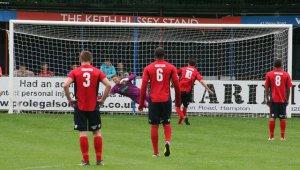Most economic theory is modelled on the laws of motion developed in the 17th century under the ideology that for every action there is an outcome. The recent TV deal agreed by the Premier League is a great example of this. The action? Sky and BT paying an eye-watering £5.14 billion for the rights to show live football. The outcome? An increase in subscription costs to fund this investment, resulting in more fans turning to illegal, free web streams. The action? Putting out a weakened team in the FA Cup? The outcome? A humiliating thrashing. The action? A player is sent off. The outcome? Team now plays against one less man, giving them a numerical advantage.
If the footballing world does indeed always behave like this then why do we find it so hard to correctly predict what will happen in games when certain actions occur? Austrian economist and avid SC Weiner Neustadt fan Friedrich Hayek believed that economics and football were far too complex to model in this way, building on the work of his nemesis, the big Zulte Waragem fan Ilya Prigogine who had declared at half-time in the derby versus FC Kortrijk in 2001 that predictable, regular actions by players does not necessarily lead to a predictable result for the team. Whilst you can shoot every time you get the ball, there is no guarantee that you will win, or even score he mused over his half time pie.

Football is unpredictable. The same team, playing in the same formation against the same opposition two games in a row will perform differently due to external factors such as the pitch, the weather and the referee. That’s what makes the game so beautifully unpredictable and complex. And that, ladies and gentlemen is the basis of the theory of Complexity and Chaos.

